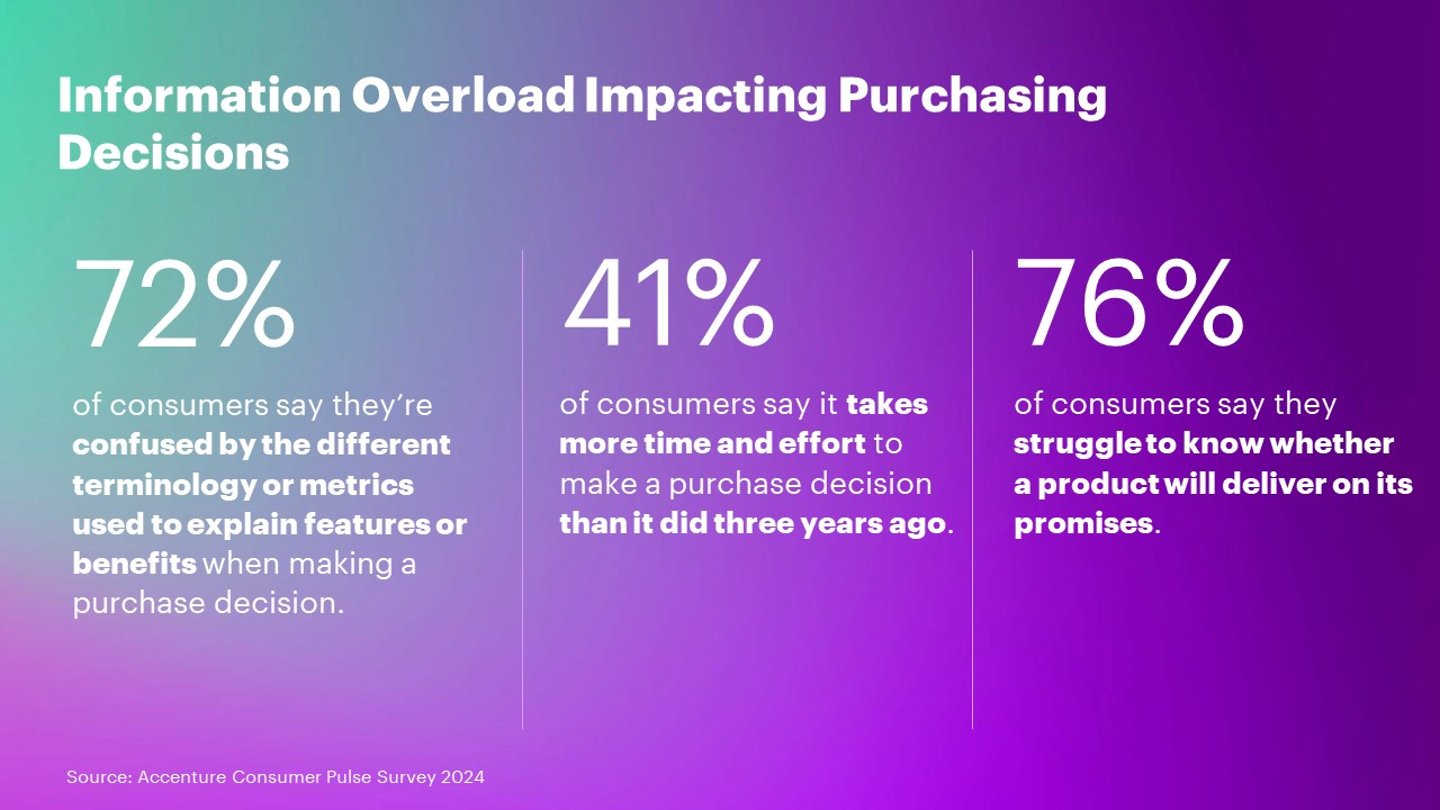'Overwhelmed' Consumers Walking Away From Some Purchases
How much information is too much for today’s shoppers? While grocers glean a lot of data from people and their habits and attitudes, many consumers say they are inundated with information when browsing and buying.
According to the Consumer Pulse Survey 2024 from consulting firm Accenture, a solid 73% of consumers feel overwhelmed by too many choices and, even more importantly, 74% are walking away from purchases because of it. The research, conducted among 19,000 consumers across 12 countries, found similar rates of frustration or confusion about other issues: 75% feel “bombarded” by advertising, 76% struggle to know whether a product delivers on its promises and 72% are confused by different metrics used to explain a product’s features or benefits.
[RELATED: Majority of Shoppers Won't Buy Nonfood Items at Grocery]
Accenture’s analysts concluded that the results – including one finding that 41% of consumers believe it takes more time and effort to make a purchase decision now than three years ago – indicates that some streamlining of information is in order.
Such streamlining includes AI. To that end, just over half (51%) of respondents are open to using conventional AI solutions and 55% are open to using GenAI to make purchases for them.
“We expect that in the next three years, the adoption of these GenAI technologies by consumers will bring the most significant reconsideration of what and how they decide to purchase that we have seen in decades. Why? Because consumers are telling us they will use conversational GenAI solutions to help them research and buy products and experiences, and these tools will cut through the traditional sales and marketing messaging that, to date, has been the dominant shaper of consumption,” said Oliver Wright, senior managing director and global lead for Accenture’s consumer goods and services industry practice.
Getting Into Grocery
In addition to the topline findings about information overload, the survey delved deeper into other aspects of shopping, including grocery shopping. For example, the research revealed that while 74% of consumers enjoy browsing for inspiration and discovering new things at grocery, 71% wish they could identify available options that suit their needs more quickly and easily.
Other grocery-related findings including the following statistics:
- 57% of respondents trust brands and companies not to lie to them when it comes to groceries.
- 80% trust they are getting the quality they pay for.
- 77% value facts and figures when making a grocery purchase decision.
- 72% value personal recommendations and reviews when making a grocery purchase decision.
- 76% have a good understanding of which options are healthy when buying groceries, but less than two thirds (61%) trust health-related claims.
- Price and quality are the two most important factors when it comes to making grocery purchases: 37% of consumers say price is the most important factor, while another 36% say quality is most important. However, more than 1 in 4 (27%) are not confident in their ability to make a purchase decision that is the best possible price. Similarly, 1 in 4 (24%) are not confident in their ability to make a purchase decision that is the best possible quality.
- 62% sometimes, regularly, or always find that options they’re interested in are no longer available or sold out.






